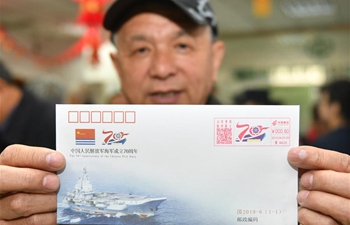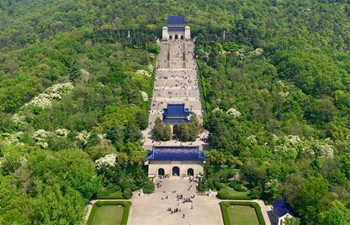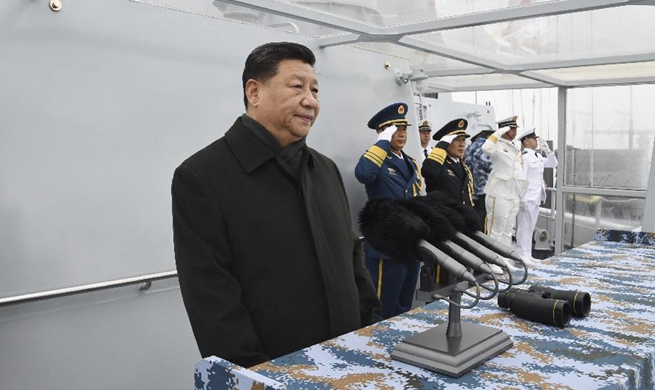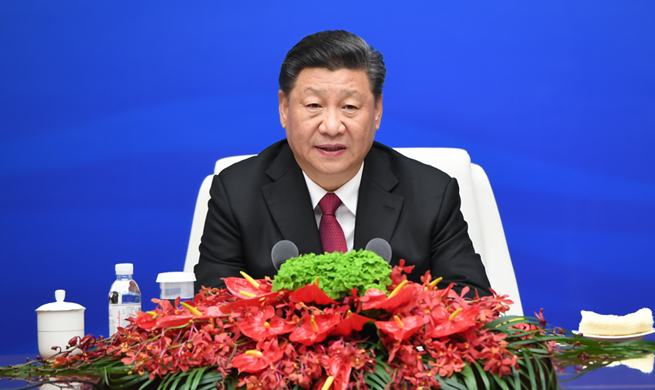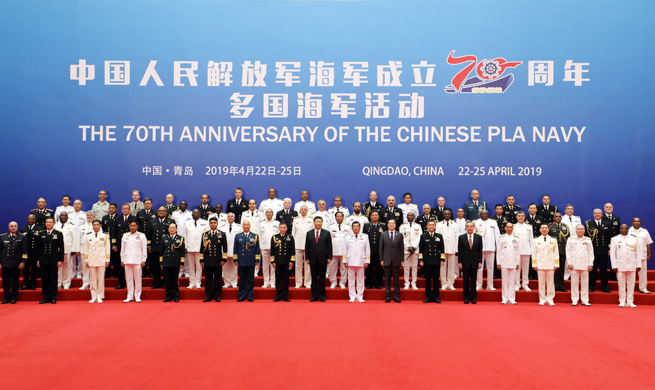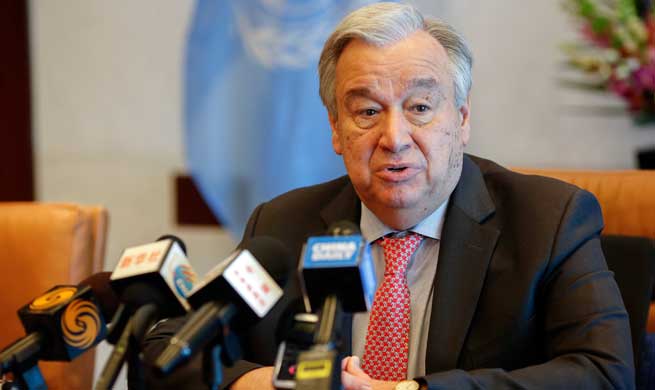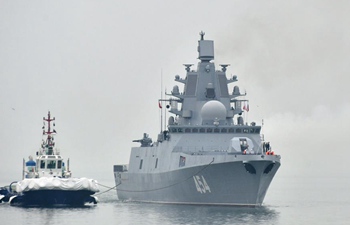WASHINGTON, April 23 (Xinhua) -- If there is an agenda linked to the China-proposed Belt and Road Initiative (BRI), that is building a community with a shared future for mankind, Chinese Ambassador to the United States Cui Tiankai said in an article published Tuesday.
Cui's words, contained in an article that appeared on the Fortune magazine's website, were a response to the allegation made by critics that "the BRI must have an underlying strategic aim or agenda."
"If so, then building a community with a shared future for mankind is the agenda, as first and foremost, the BRI aims to promote connectivity," the ambassador said.
"The BRI is open, inclusive and transparent," Cui said. "It is not a geopolitical tool, nor is it designed to form an exclusive clique or impose any terms on others."
Cui's article, in which he also called on the United States to embrace the opportunities associated with the BRI, came two days before the second Belt and Road Forum for International Cooperation is to be held on April 25-27 in Beijing.
The key to the BRI's success and popularity, Cui said, is that it focuses on addressing the development issue, of which building the road is the first step. "Therefore, learning from our own experience, we are ready to help others improve infrastructure and connectivity."
Cui said the BRI is not only "a massive infrastructure project," but also "a force for development that will boost trade and investment with our partners, create more job opportunities for local citizens, and improve stability and quality of life."
According to Cui, 126 countries and?29 international organizations have signed BRI cooperation documents with China. The total trade between China and other BRI countries has exceeded 6 trillion U.S. dollars, and China's investment in these countries has surpassed 80 billion dollars.
Chinese companies, the ambassador said, have generated over 2 billion dollars in tax revenue and 300,000 jobs for locals.
Cui mentioned in particular the Asian Infrastructure Investment Bank and the Silk Road Fund, which he said were established to tackle the major challenge of financial bottleneck, and to complement organizations such as the World Bank and help narrow the funding gap.
Countries participating in the BRI have also enhanced the coordination of development strategies and people-to-people amity, the ambassador said. "Because hardware connectivity alone, short of software connectivity, is inadequate to ensure the resilience of the BRI."





